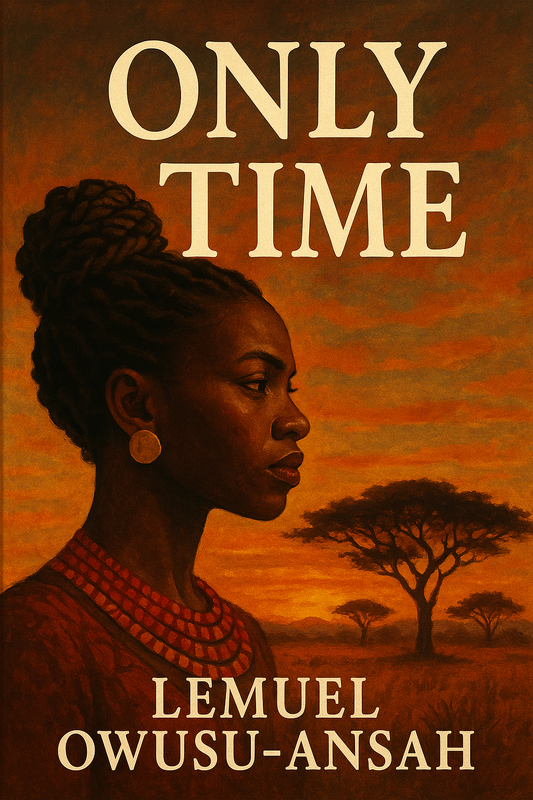
This profound poetic composition from Lemuel Owusu-Ansah's literary collection constitutes a sophisticated examination of themes pertaining to marital oppression, resilience, and the transformative journey toward liberation. The titular designation "Ataassa" originates from the Akan linguistic tradition of Ghana, signifying "it will blossom and scatter"—an articulation of anticipated freedom and renewal following periods of domestic subjugation.
Ataassa represents an anthroponym of African origin, conventionally employed as a patronymic within the Ghanaian Awoshie community to designate individuals who manifest exceptional positivity or catalyze beneficial circumstances. Etymologically, the term functions as an interrogative—"has it exploded?"—thereby interrogating whether blessings have germinated and proliferated. This nomenclature is typically associated with jubilant contexts and serves as an honorific for those who engender abundance and positive transformation.
Although not extensively documented beyond specific cultural milieus, this concept encapsulates a sophisticated indigenous epistemology of growth characterized not by incremental progression but by explosive, transformative emergence—a sudden efflorescence of benedictions and positive energy that disseminate to collectively benefit the community.
This poetic work constitutes the third installment in Lemuel Owusu-Ansah's critically acclaimed "Tales from Africa" series, which represents a significant contribution to contemporary African literature. The collection undertakes a sophisticated exploration of traditional African concepts through the medium of contemporary poetry, synthesizing cultural wisdom with literary innovation.
Within this specific work, the protagonist—who bears the name Ataassa—functions as both a literary character and a symbolic representation of the cultural concept. This dual signification creates a rich intertextuality that enhances the poem's thematic depth and cultural resonance.
The poem powerfully articulates the protagonist's experience of marital subjugation, depicting her husband as an alcoholic whose presence suffocates her aspirations. The imagery of "yam vines twine and choke the hope from this life of mine" vividly conveys the constricting nature of her domestic circumstances.
Despite this oppression, the poem transforms into a powerful declaration of resilience and eventual liberation. The protagonist's determination to "toil alone and master my own fate" represents a feminist assertion of autonomy within a patriarchal structure. Her invocation of "Ataassa" serves as both a personal mantra and a prophetic declaration of her imminent emancipation from marital shackles.
This narrative of seeking liberation from an oppressive marriage resonates with broader discourses on women's agency in postcolonial African literature, positioning the work within important conversations about gender dynamics in contemporary African societies.
The poem's climactic utilization of the term "Ataassa" operates on multiple semantic levels, creating a sophisticated literary device. The protagonist—who bears this name—engages in a potent act of self-referential affirmation, invoking her own identity as both prophecy and catalyst for liberation.
This technique constitutes what literary scholars might term "onomastic resonance," wherein a character's name functions not merely as identificatory but as performative utterance. By declaring that her circumstances will "Ataassa," the protagonist simultaneously:
- References the cultural concept of explosive, scattering growth and liberation
- Invokes her own identity and inherent capacity for self-emancipation
- Creates a linguistic bridge between present oppression and future freedom
- Transforms her name into a verbal talisman of empowerment against marital constraints
This literary strategy exemplifies Owusu-Ansah's sophisticated approach to synthesizing cultural heritage with contemporary poetic expression, positioning the work within broader postcolonial literary discourses that reclaim and revalorize indigenous epistemologies of resistance and liberation.
Within the Akan linguistic tradition, "Ataassa" conveys a semantic richness that transcends simple botanical growth. It describes a phenomonological process wherein a plant undergoes not merely incremental development, but rather an abundant efflorescence followed by disseminative scattering of seeds, thereby ensuring ecological continuity and renewal. This concept provides the poem with its central metaphoric framework—that present marital struggle may yield not merely survival, but transformative liberation that proliferates to benefit the collective.
Within the Awoshie community of Ghana, naming conventions represent a complex cultural system encoding philosophical principles, historical consciousness, and aspirational values. Patronymics such as Ataassa function not merely as identificatory markers but as descriptive narratives of character and anticipated destiny.
To receive such a name constitutes a form of cultural recognition—an acknowledgment that an individual embodies or is predestined to manifest qualities beneficial to the collective. This anthroponymic practice reflects a worldview wherein individual and communal wellbeing exist in symbiotic relationship, contrasting markedly with Western constructions of atomized individualism.
Owusu-Ansah's poem masterfully integrates this cultural paradigm into its narrative architecture, demonstrating how profound personal challenges within marriage may ultimately yield abundant liberation that extends beyond the individual to enrich the entire social fabric.
This exemplary work represents a significant contribution to contemporary African literature, skillfully integrating cultural specificity with universal themes of marital oppression and liberation. Through its sophisticated deployment of onomastic resonance and cultural metaphor, the poem transcends mere personal narrative to articulate a powerful epistemology of hope and transformation that aligns precisely with the multivocal signification of Ataassa—simultaneously designating explosive growth, communal benefit, and personal emancipation from marital constraints.